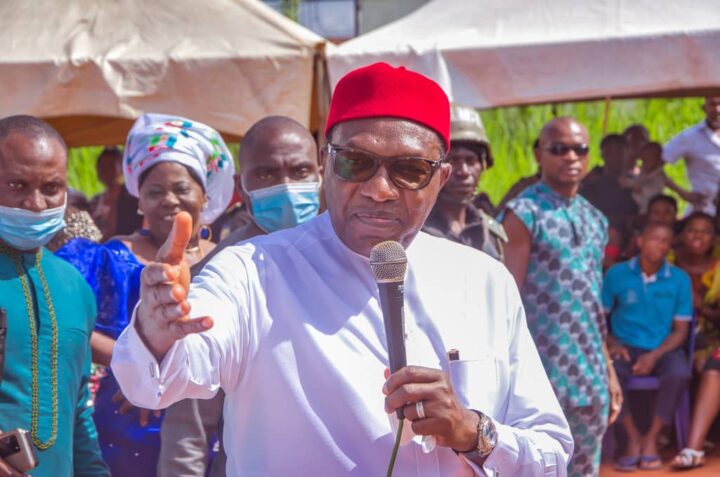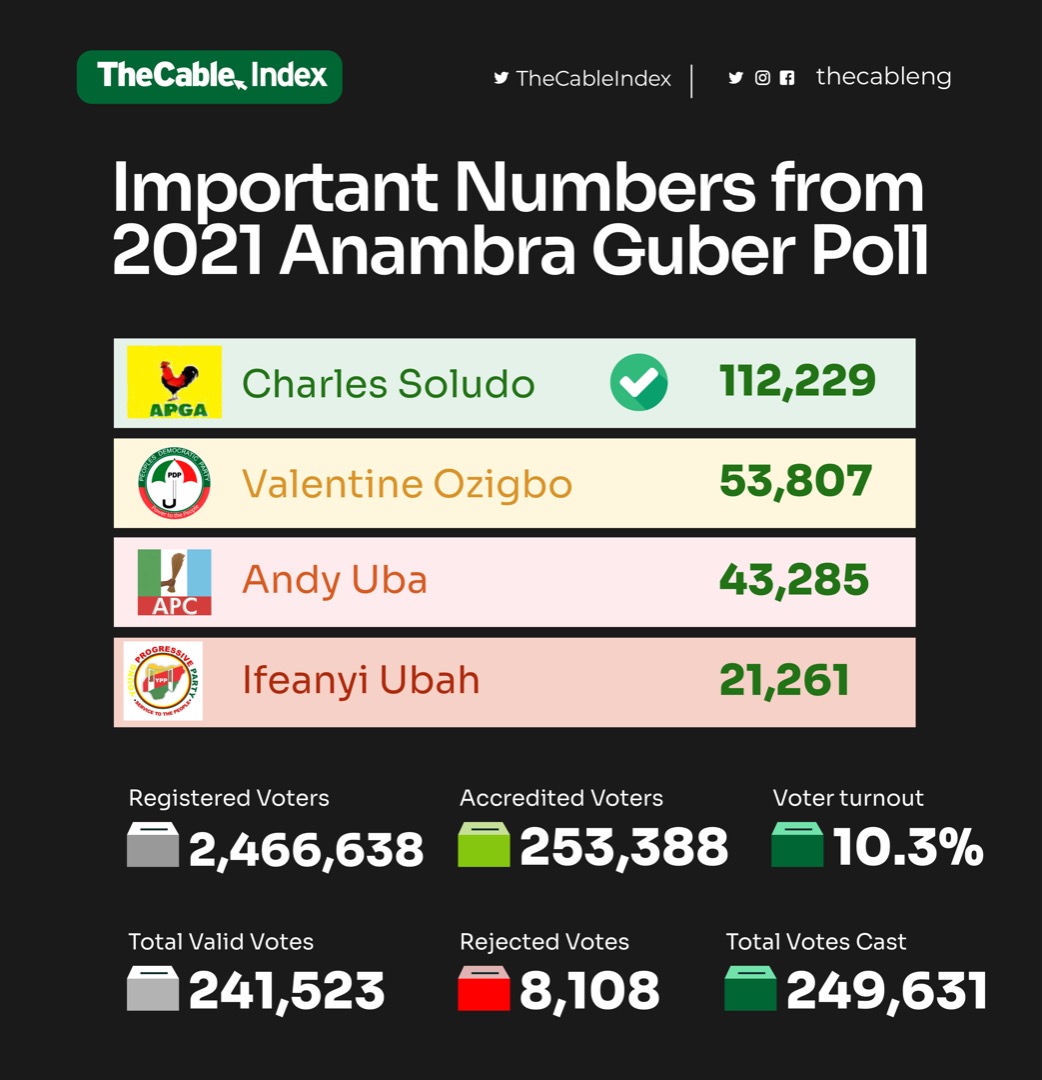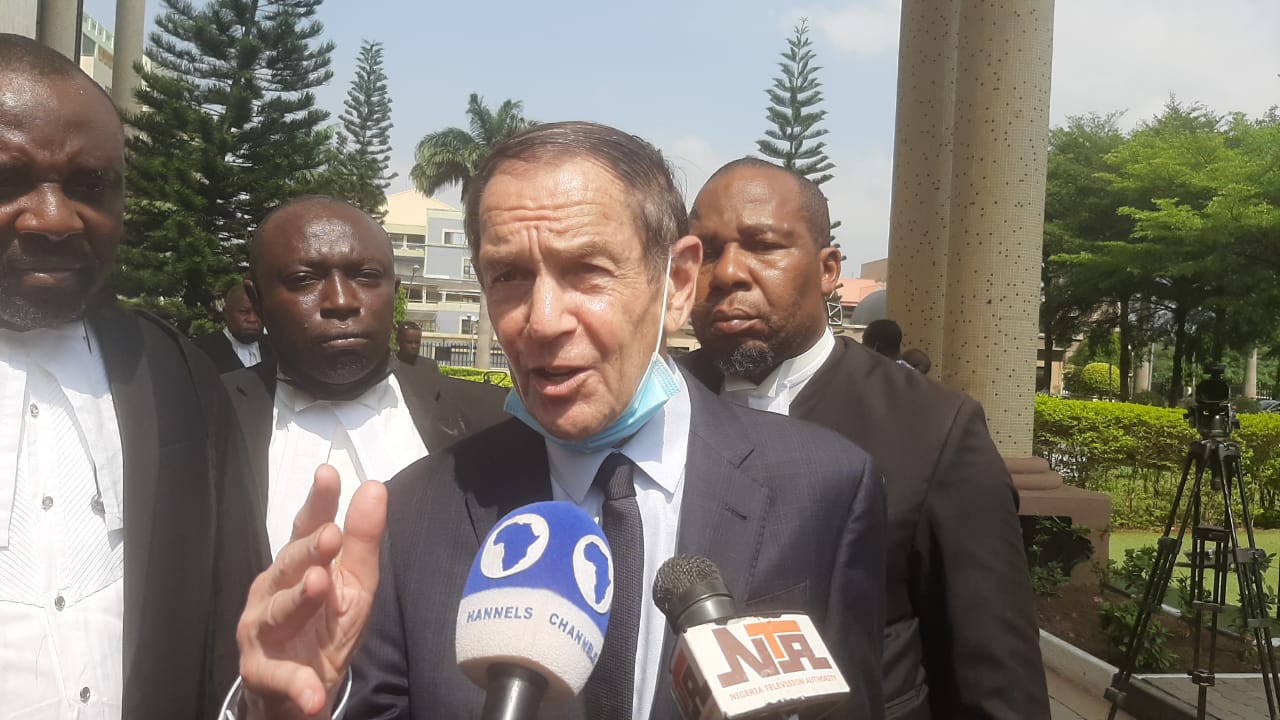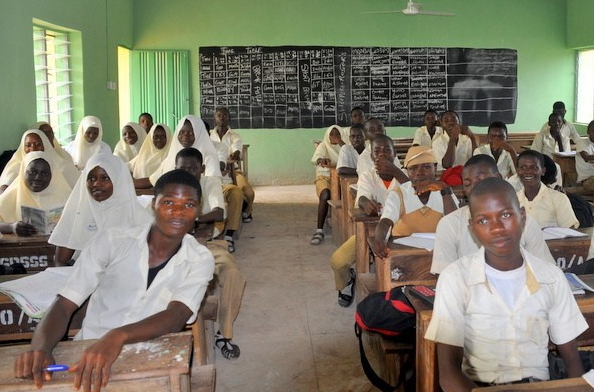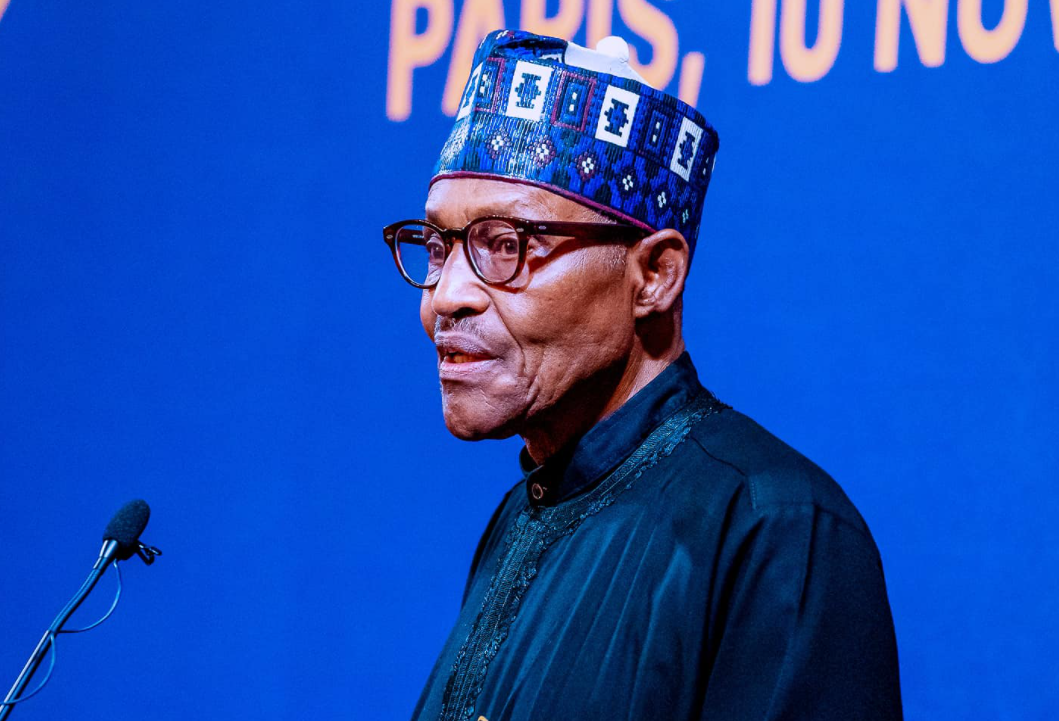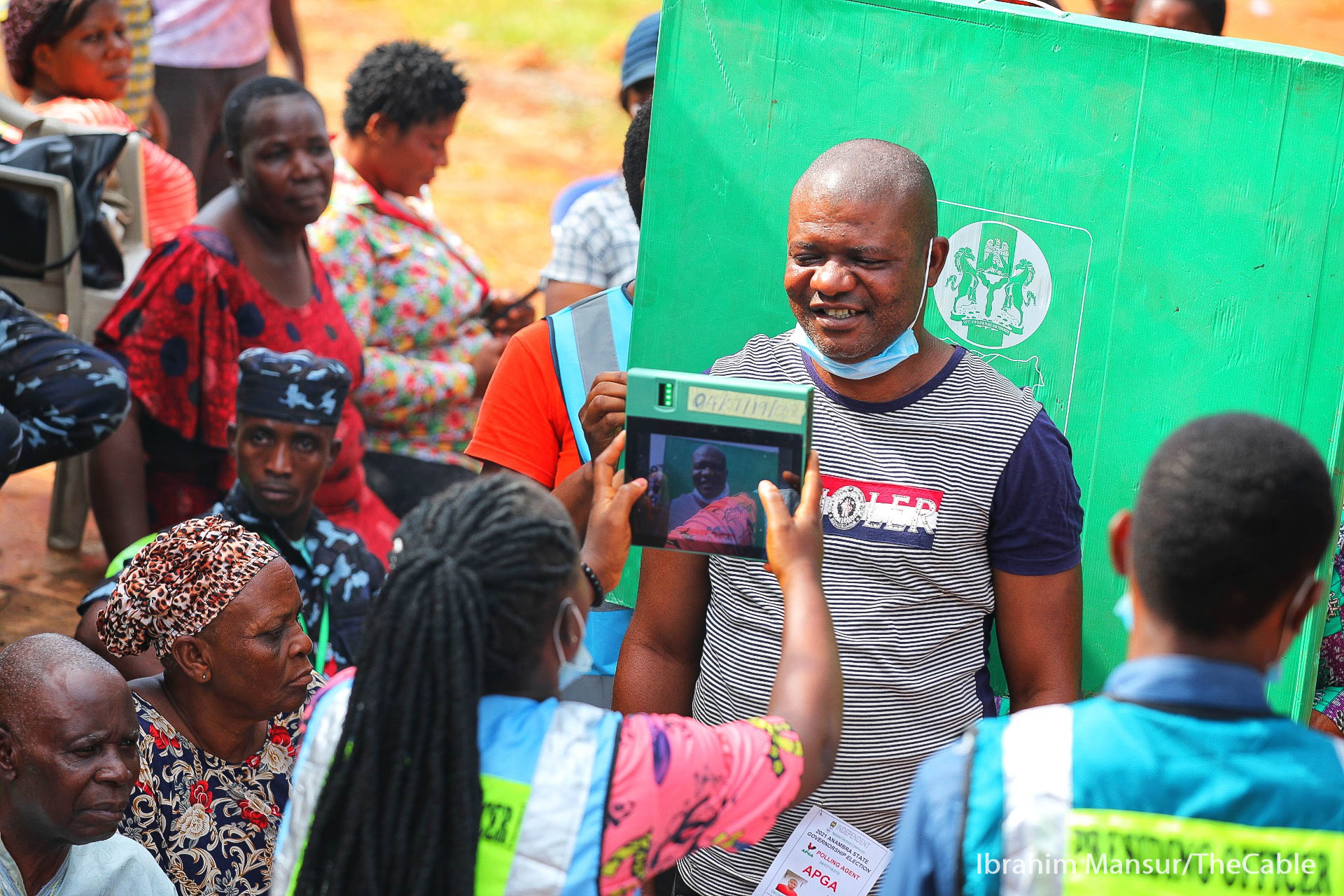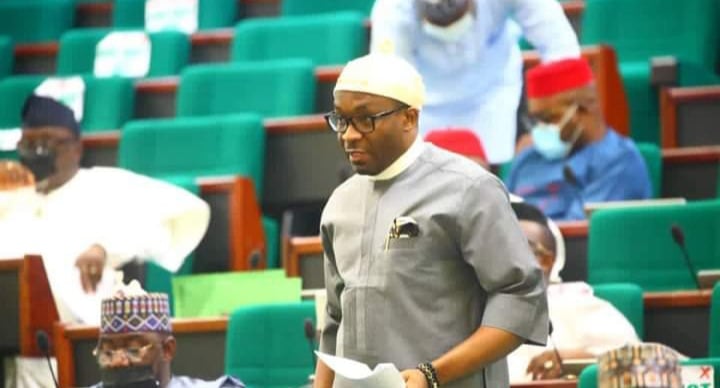Andy Uba
The clamour for free, fair and credible elections in Nigeria is timeless. Elections in the country have always drawn national and international attention over concerns of rigging, voter inducement, violence and other electoral vices. Election after election, some or all of these vices are noted to have played out and it was not any different during the just-concluded governorship election in Anambra and the primary polls that preceded it.
ANDY UBA’S PRIMARY ELECTION VOTES
As is the ritual, political parties are expected to conduct primary elections among aspirants and subsequently pick candidates who will represent them in the main election.
Andy Uba, a former senator, was declared winner of the June 26 All Progressives Congress (APC) primary election in Anambra state.
Advertisement
Dapo Abiodun, governor of Ogun state and chairman of the APC primary election committee, said Uba scored 230,201 votes, beating 13 other aspirants to emerge as the party’s flagbearer.
According to Abiodun, the total vote cast was 348,490. All voters are supposedly eligible members of the party.
How did other aspirants fare? Johnbosco Onunkwo had 28,746 votes, Chidozie Nwankwo polled 21, 281, George Moghalu (18,596), Paul Orajiaka (4, 348), Geoff Onyejeagbu (3, 414), Azuka Okwuosa (17,189) Nwokafor Daniel (3,335), Ikoobasi Mokelu (3,727), Kwebuike Ifeanyi (1,466), Godwin Okonkwo ( 5,907), Ben Etiaba (4,244), Edozie Madu (3,636) and Maxwell Okoye (2,540).
Advertisement
While Uba’s party employed the direct primary method, candidates of the All Progressives Grand Alliance (APGA) and Peoples Democratic Party (PDP) employed indirect primary election.
UBA’S PERFORMANCE IN THE GUBER ELECTION
With 230,201 votes said to have been polled during the APC primary, Uba was expected to be a strong contender in the governorship election.
But surprisingly, Uba polled a total of 43,285 votes in the main and supplementary elections which maintained the state’s track record of low voter turnout in governorship polls.
Advertisement
Chukwuma Soludo, the APGA candidate, was adjudged winner of the governorship election with 112,229 votes — less than half of what Uba polled in APC’s primary.
VOTER APATHY, IPOB TO BLAME?
Since 2010, elections in Anambra have always been characterised by low voter turnout. The argument that voter apathy may have been responsible for Uba’s score in the guber poll may be hard to sell, given that the same voter apathy did not affect the primary election.
Advertisement
There’s also the point that the fear of the proscribed Indigenous People of Biafra (IPOB) and its sit-at-home orders may have been responsible for the low voter turnout during the governorship election, and consequently, affected the votes garnered by the APC candidate.
However, IPOB has been declaring sit-at-home orders as far back as May 2021 and the APC primary took place in June. Yet, 348,490 people were said to have voted in the primary.
Advertisement
Meanwhile, IPOB had lifted the sit-at-home order a day before the governorship election. There was also a heavy security presence in the state — two advantages that were not available when APC held its primary.
SO WHAT HAPPENED TO THE VOTERS?
Advertisement
Long before the governorship election showed loopholes in the outcome of the APC primary poll, other party members and stakeholders had criticised the exercise.
Eleven of the 14 governorship aspirants of APC in Anambra had claimed that the June 26 primary in the state did not hold.
Advertisement
Chris Ngige, minister of labour and productivity, had also faulted the outcome of the election which he termed a “total fabrication”.
In Nigeria, the Independent National Electoral Commission (INEC) only monitors political party primary elections. It does not conduct them.
The commission, in its report on the APC primary, said its observers mobilised for the poll did not witness voting at the collation centres.
INEC said although there was a “large turnout” of APC members at voting centres across the state, they waited in vain because the party’s electoral officials and materials did not show up.
THE BUHARI ANALOGY
In the APC primary election of October 2018, President Muhammadu Buhari, then APC presidential aspirant, secured 2,931,235 votes across the 484 wards in the 44 LGAs of Kano state — according to a statement by Abba Anwar, chief press secretary to Abdullahi Ganduje, governor of the sate.
Come February 2019, he went ahead to win all Kano LGAs in the presidential election — but with 1,464,768 votes — less than 50 percent of the votes he polled in the primary election. What happened to the remaining 1,466,467 voters?
THEN, HOW CREDIBLE ARE PRIMARY ELECTIONS?
Charity, they say, begins at home. If the credibility of elections at the primary stage is still being questioned, then Nigeria may be a long way from actualising its desire for unimpeachable democratic electoral processes.
After all, it is aspirants that become candidates and eventually become winners. What played out in the primary elections may ultimately repeat itself in the main elections.
Add a comment

